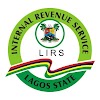How we‘ll determine new minimum wage — Govt, OPS, Labour
A few days ago, President Bola Tinubu inaugurated the long-awaited National Minimum Wage Tripartite Committee to arrive at a new minimum wage for workers in Nigeria in line with Convention 131 of the International Labour Organisation, ILO.
The 37-member Tripartite Committee is to come up with a new national minimum wage in the next two months to replace the subsisting N30,000 minimum wage that has been on since April 18, 2019.
Recall that former President Muhammadu Buhari had on April 18, 2019, signed the N30,000 National Minimum Wage Act into law with a life span of five years among others.
In the composition of the committee, Organised Labour represented by the Nigeria Labour Congress, NLC, and its Trade Union Congress of Nigeria, TUC, counterpart, has 12 members, while the Organised Private Sector of Nigeria, OPSN, represented by Nigeria Employers’ Consultative Association, NECA, Manufacturers Association of Nigeria, MAN, Nigeria Association of Chambers of Commerce, Industry, Mines and Agriculture, NACCIMA, and National Association of Small and Medium Enterprises, NASME, has 12 members.
Similarly, the Nigerian Governors’ Forum, NGF, has six members, and the Federal Government has seven members representing the six zones of the country.
Inaugurating the committee, President Tinubu, represented by Vice-President Kashim Shettima, pleaded with members of the committee to among others, “speedily” arrive at a resolution and submit their reports early as the current N30,000 minimum wage expires at the end of March 2024.”
He added: “We have identified the need for the review of the National Minimum Wage and to consider a minimum wage level that can alleviate the nation.”
Speaking, the Committee Chairman, Buka Aji, said: “We want a situation where Nigerian workers are sufficiently motivated to work for the common good. Once they are sufficiently motivated, they would do very well because they are productive, because they are creative, they are full of initiatives, human resource base. We are here to ensure that our actions are in line and in conformity with the law and expectations and aspirations with the Nigerian worker.
Speaking, Life Vice-President of NACCIMA, Chief Humphrey Ngonadi, said, among others: “If a worker is paid N1 million as a minimum wage and the bag of rice is N900,000, the N1 million still has no meaning. So, I think why we are thinking of minimum wage to hike the salary of the workers, the government on their own side has to think of how that money will add value.
“Having value is if a bag of rice that was N8,000 yesterday is now N50,000 and you increase the salary of the workers and the price of rice will be N100,000 or N200,000, the salary you increased has no value. I think the government is going now in the right direction.
“Also, while we increase the salary of the workers, let the government work on the price of commodities to come down. If the dollar steps down now, the price of commodities will step down. My mind is going that way.”
Similarly, President of TUC, Festus Osofo, said the N200,000 earlier proposed by Labour was no longer realistic saying: “You could remember that as at that time when we proposed that N200,000 minimum wage, inflation had not gotten to where it is today. If you also recall that when we did that proposal, the official exchange rate was somewhere around N450 to $1.
“You could also recall as well that the parallel market rate as at then was somewhere around 700 Naira to $1. But today, all these have been shattered. What that means is that we will go back to the drawing board because Nigerian workers are battered as we speak, I mean the pay today literally is nothing. So the Nigeria workers as we speak now, are going through an excruciating period.
Also speaking, the Deputy President of the NLC, Prince Adewale Adeyanju, said: “If the workers today are expectant, they want a robust minimum wage, I believe there won’t be any rigidity coming from the angle of the government. So I’m in line with what my TUC President said.”
President of NLC, Joe Ajaero, who was unavoidably absent at the inauguration due to a scheduled trade union assignment outside the country before the inauguration invitation reached NLC Secretariat, among others, told Vanguard that the National Minimum Wage is a reflection of objective realities driven by existential issues such as cost of food, beverages, housing, clothing, transport, communication, education, health care etc. These and others are the factors that must determine the eventual outcome for it to have any meaning. You do not play give and take with the lives of workers and Nigerians.
“It must be based on what it costs the average Nigerian worker to survive or exist as a human being. That is where the compromise must be worked around, anything less than that makes the outcome less humane and reinforces poverty. The outcome must renew the hopes of Nigerians and not sabotage or betray it.”






.gif)
0 Comments